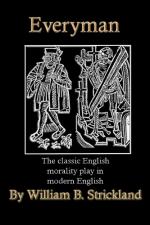|
This section contains 3,370 words (approx. 9 pages at 400 words per page) |

|
In the following essay, Kaula, a specialist in Elizabethan literature, compares and contrasts Everyman and Christopher Marlowe's Dr. Faustus, examining how well the plays translate to modern theatre and readership.
In his recent study, Shakespeare and the Allegory of Evil (1958), Professor Bernard Spivack points out two related trends in the development of the English morality play during the sixteenth century: the first a change from a hero who represents all humanity to one who embodies only an aspect of humanity; the second a change from a comic to a tragic ending. Behind these changes lay the general shift from a Catholic to a Protestant theological perspective. One of the chief purposes of the older plays was to demonstrate the possibility of salvation for all humanity: hence the generalized hero and the happy ending. The later plays, on the other hand, were more concerned with the exceptional individual...
|
This section contains 3,370 words (approx. 9 pages at 400 words per page) |

|




